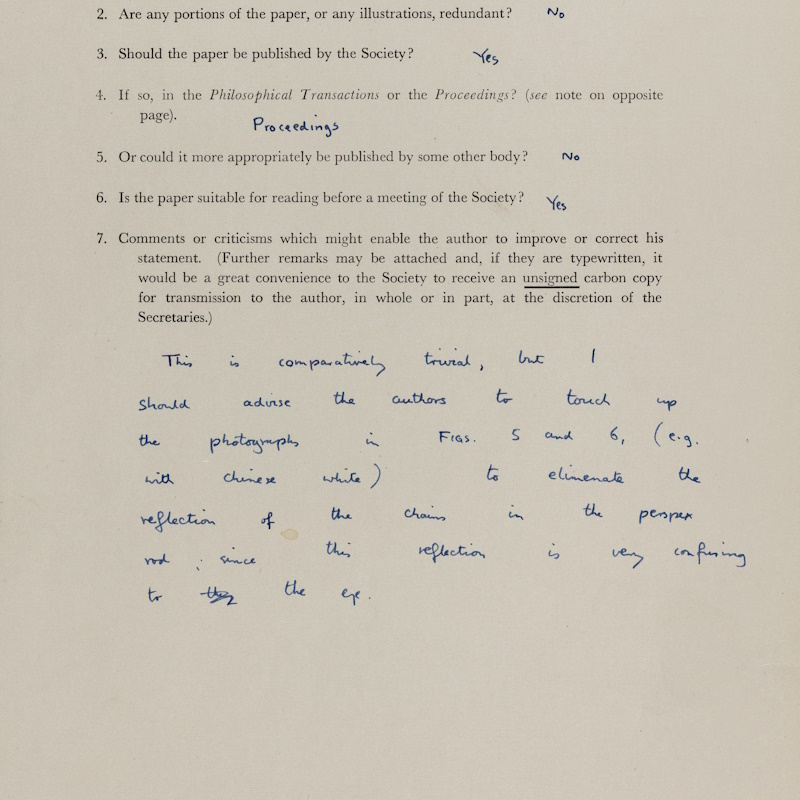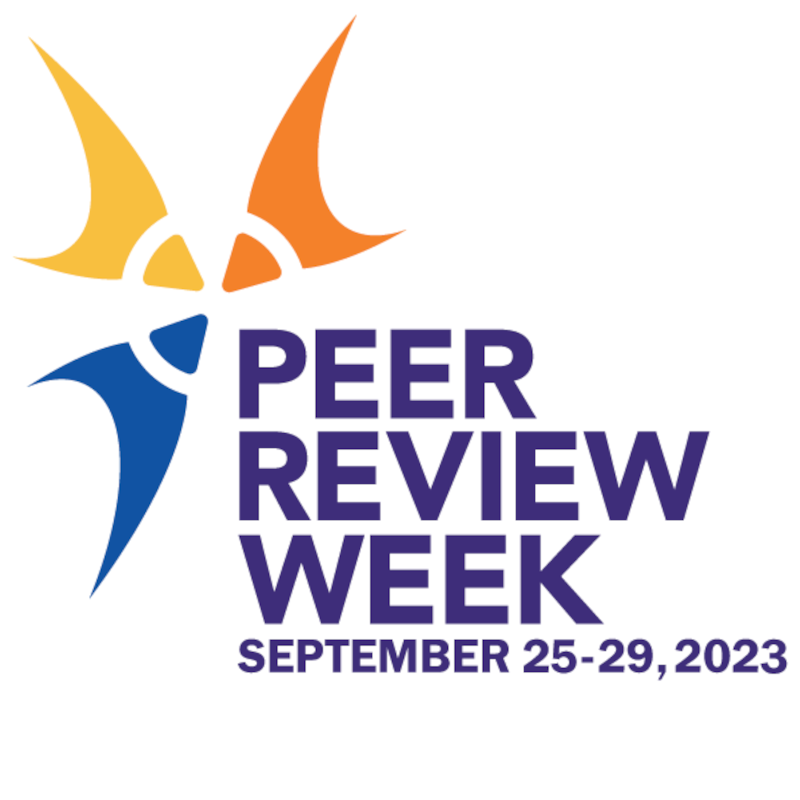Reviewers
Why review for the Royal Society journals?
Science is underpinned by the support and expertise of peer reviewers. By reviewing, you are:
- contributing to the quality and progression of science
- reciprocating the benefits when others review your papers
- helping with your own research, professional development and profile - funders are starting to encourage inclusion of peer review activity in funding applications
If you are invited to review for one of our journals, and are suitably qualified to review the work, please try to say 'yes'. We will give you recognition (if you want it) and full support.
Diversity
The Society and its journals are committed to improving inclusion and diversity within science publishing. Reviewers have a vital role to play in this mission. We remind reviewers to be aware of any unconscious biases when assessing a paper. We are all susceptible to such biases and should take care that recommendations are based on the scientific merits of a paper. Possible biases to be aware of are country of origin, institution, name, gender, race and ethnicity to name a few.
Recognition for reviewers
We share a growing opinion that the assessment of researchers should not just be confined to the Impact Factor of the journal in which they publish. We believe that assessment should be based on a broad range of research outputs including peer review activity. To help recognise the vital contribution our reviewers make to the publishing process we provide recognition for your review work with us by offering:
- Reviewer rewards
Open Biology and Biology Letters have introduced a reward scheme based on open access discounts. When you review an article in either journal, you will be eligible for one discount token (equivalent to £200/$254/€233) towards the Article Processing Charge (APC) cost of publishing an open access article in any Royal Society journal. - Recognition by the journal
Six of our journals publish annual citable articles containing a list of reviewers who have reviewed for the journal and opted to receive this recognition. - Certificates
Peer review certificates confirming that you have reviewed for a Royal Society journal are available on request. - Recognition through the Web of Science Reviewer Recognition Service (previously Publons)
This free service records, verifies, and showcases peer review contributions, which can be used in promotion and grant applications. The reviewer gets credit even if the reviews are anonymous and the manuscript is never published. Simply opt-in to the Reviewer Recognition Service when reporting via ScholarOne. - Option to sign published reports
Four of our journals (Proceedings A, B, Royal Society Open Science and Open Biology) offer transparency by publishing peer review information (reviewer reports, decision letter and response) under an open access licence (CC-BY 4.0) alongside published articles. Reviewing in these journals is anonymous by default but reviewers have the option to sign their names to gain recognition. - Co-review
A co-reviewer is defined as a researcher, often early in their career, who reviews a manuscript together with a more senior (invited) reviewer (see full policy). There is the opportunity for the senior reviewer to give recognition to the co-reviewer through the Reviewer Recognition Service and where we publish peer review reports by adding their name (provided consent has been given).
Peer review with us
Our Editors select reviewers based on relevant expertise from a wide and diverse pool of researchers from all over the world. Are you interested in peer reviewing for the Royal Society journals?
You need to be qualified at least PhD level (or equivalent) in a relevant subject, an active researcher and have published recently in one or more reputable peer reviewed journal.
If you have less experience, there is still the option to co-review with your supervisor or another colleague. Please approach them expressing your interest, so if they get invited to review you can review with them and get recognition.
To be a journal reviewer, please register on ScholarOne. Once registered you will be considered as a reviewer for manuscripts that are within your research area. Reviewers are flagged within our system but we cannot guarantee that you will be selected as a reviewer for one of our journals. Read our peer review policy.
Support for reviewers
We recognise that researchers are busy people and we therefore try to make reviewing for our journals a simple, straightforward and rewarding experience.
- Each journal has specific reviewer guidelines available via the 'information for...reviewers' menu on each journal homepage
- Supporting data for articles is easy to access
- Reviewer report forms are as concise as possible
- We offer email and telephone support to all reviewers
The Royal Society encourages early-career researchers to get involved in the peer review process. If you require any assistance with your review, please feel free to contact the Editorial Office of the journal.
We would recommend new reviewers to take advantage of training materials such as through the Web of Science Academy or Nature Masterclasses, and would recommend that you read our peer review blog post series including ‘Tips for good practice in peer review’ and ‘What makes a good or a bad peer review?’.
If you have a question or feedback on how we might enhance the experience of reviewing, contact us or the journal which invited you. We are happy to help.













